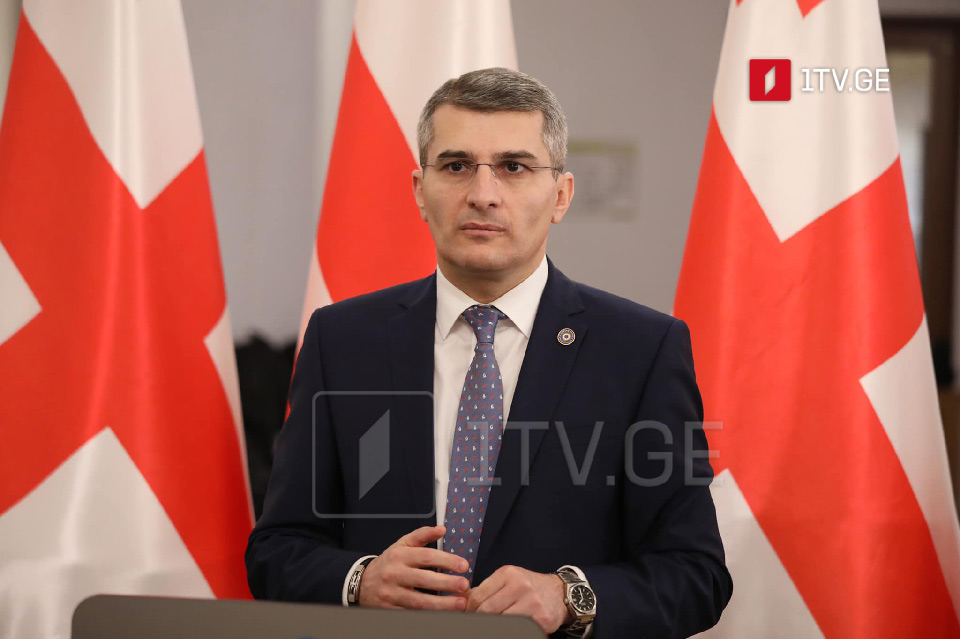Majority Leader: Receiving funding for serving Georgian and foreign interests is a source of pride
Mamuka Mdinaradze, the leader of the parliamentary majority, commented on the criticism surrounding the draft law on the Transparency of Foreign influence.
He stated that critics have seized upon the title, which they find stigmatizing, and claimed he would not work under such a title. Mdinaradze argued that “pursuing the interests of a foreign power” is a factual statement when an organization is financed from abroad. He noted that it’s not shameful, but rather a source of pride to receive funding that serves both Georgian national interests and noble foreign interests.
Mdinaradze emphasized that organizations proudly declare their European funding when their work supports both European and Georgian interests. He added that funding only becomes stigmatizing when it is used to support dark or anti-national causes.
“There is a summary of the global practices regarding the regulation and transparency of foreign influence:
USA: The “Foreign Agents Registration Act” requires agents working on behalf of foreign principals to register.
European Union: The “Establishing harmonized requirements in the internal market on transparency of interest representation carried out on behalf of third countries” requires member states to create a registry.
Russia: The “On the Control of the Activities of Persons Under Foreign Influence” law refers to individuals as foreign agents.
United Kingdom: The “Foreign Influence Registration Scheme” categorizes individuals as specified persons.
Australia: The “Foreign Influence Transparency Scheme Act” designates entities related to foreign states or persons related to foreign states.
Canada: The “Enhancing Foreign Influence Transparency” law is an amendment to the Canadian Security and Intelligence Service Act.
France: The “Law to counter foreign interference” refers to individuals as representatives of foreign principals.
Slovakia: The law on organizations financed from abroad refers to them as organizations with foreign support.
New Zealand: The country has several acts (Electoral Act, Crimes Act, Companies Act) regulating foreign influence but does not have a consolidated law.
Israel: The “Law Requiring Disclosure by NGOs Supported by Foreign Governmental Entities” refers to individuals as recipients of foreign support,” Mdinaradze wrote.

